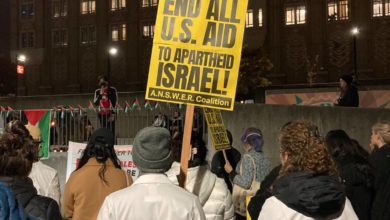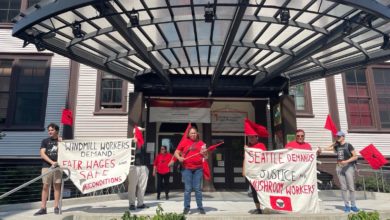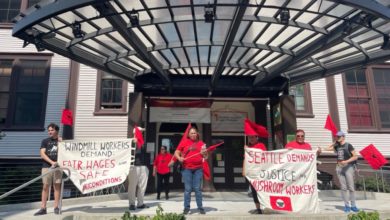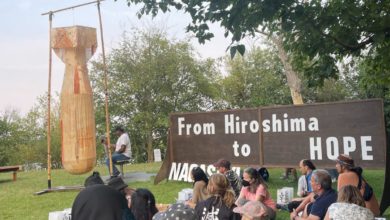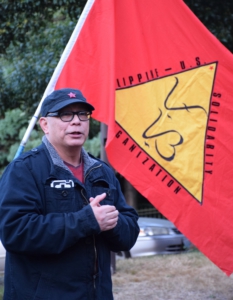
On September 21, Filipino youth and activists in Seattle, Washington held a vigil on the 45th anniversary of the declaration of martial law in the Philippines, both in remembrance of the victims of that period, as well as for those affected by martial law in the Philippines today. Attendees spoke about how martial law affected them, their families and their friends in the Philippines, as well as what U.S. support of the Philippine government meant to them as people living in the U.S..
“I always remembered hearing about martial law as something from my parents’ and grandparents’ generation; something that was in the past,” said Robert, a member of the Filipino youth and worker organization Anakbayan. “We were always disconnected from this history, but today it has returned to the Philippines.”
The vigil included songs sung in solidarity with the people and the progressive movements in the Philippines, and included denunciations “the three greatest problems afflicting the Philippines today: bureaucrat-capitalism, feudalism and imperialism,” as well as an added condemnation of “the U.S.-Duterte military regime.”
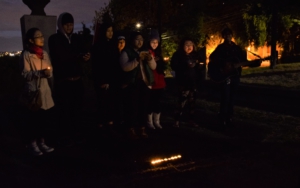
September 21, 1972, marked the date that the U.S.-backed, far-right-wing dictator Ferdinand Marcos initiated martial law, suspending civil rights of Philippine citizens and imposing harsh military control over the country. The following eight years were some of the most brutal in Philippine history, marked by bloody military campaigns and thousands of cases of extra-judicial killings, detentions, torture, rape and widespread terror by the Philippine government and army against activists, clergy, labor and peasant organizers, anti-fascists and anti-imperialist groups.
Marcos was eventually overthrown in the 1986 “People’s Power” revolution, though he himself escaped justice due to the efforts of the U.S., which evacuated him to Hawaii where he lived until his death.
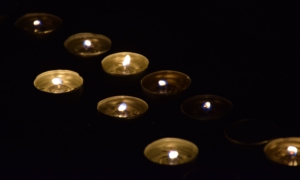
Today however the Philippines has re-entered a similar period. The election of President Rodrigo Duterte in 2016 came amidst hope that he would foster peace with the National Democratic Front of the Philippines and the Communist Party of the Philippines, as well as keep his promises to distance himself from the U.S., which has militarily occupied the country for over a century.
However, it did not take long for Duterte to show his true colors. Allegedly in response to religious extremist activity in Marawi city, Philippine President Rodrigo Duterte declared martial law in the entire island of Mindanao; roughly a third of the land area of the Philippines. Additionally, repeated violations of the ceasefire by the Armed Forces of the Philippines against the CPP’s armed wing, the New People’s Army, caused peace talks to break down and for Duterte to renege on his promises of peace, instead threatening to declare martial law in the entirety of the country
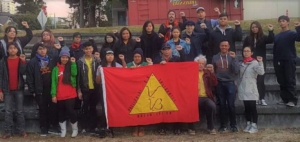
As of June 2017, Duterte’s brutal campaigns have resulted in an estimated 13,000 killings in the so-called “drug war,” 416,005 people being displaced from the aerial bombings in Mindanao, 357,569 people subjected to “indiscriminate gunfire and aerial bombing, 842 victims of illegal arrest, and 68 victims of political killings. Laurie, an activist with the Philippine women’s organization Gabriela, voiced her fury at Duterte’sactions and stressed her commitment to the struggle of the Philippine people, from Mindanao to the U.S. “Whatever hope there was that Duterte would move away from being a puppet of the U.S. or would help negotiate peace in Philippines is long gone. He is a traitor to the people of the Philippines, and we will never forget that in our fight for justice”.

